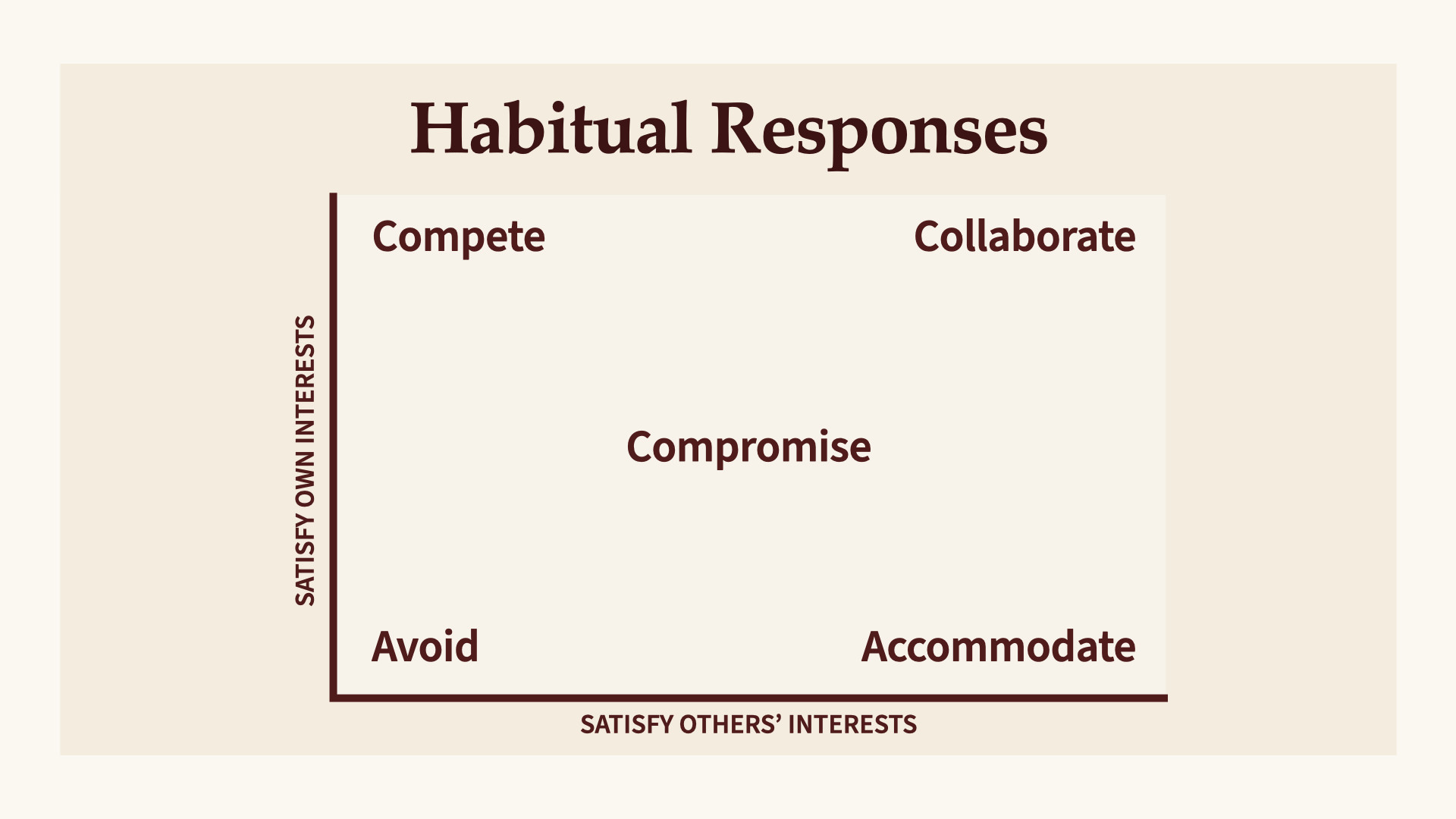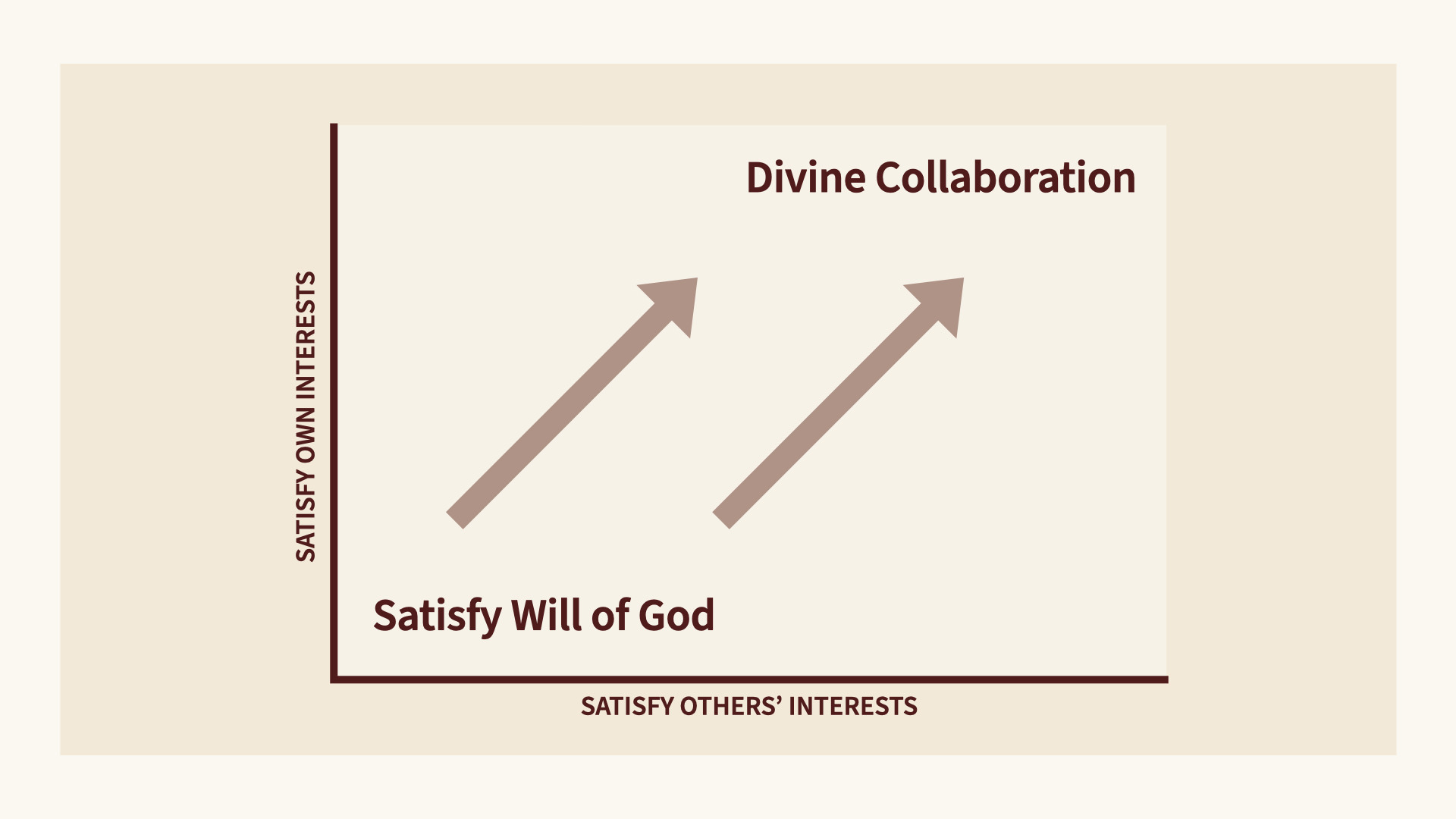Divine Collaboration deserves a brief introduction.
Divine Collaboration, the emerging peacemaking protocol, is part of a family of conciliation processes that include mediation, reconciliation, diplomacy, and spiritual direction.
Mediation Background
Though you may not be familiar with collaboration as a reconciliation process, it’s a well-established mediation style.
Like most people, you may have assumed that mediators seek compromise—cutting the pie in half—but that assumption turns out to be inaccurate.
Instead, highly skilled mediators seek to expand the pie and deliver greater overall benefit to all participants—more satisfaction than would be achieved by “cutting the pie in half.” Skilled mediators facilitate a collaborative search for ways to increase mutual benefit.
Collaboration Begins with Assessment
Collaboration typically begins with a deep-dive assessment of needs: What motivates you? What interests do you hope to satisfy?
A mediator also assesses the opposing disputant’s interests and then seeks to understand precisely how the interests clash. A mediator works to discover the precise drivers of the conflict.
The Negotiation Dance
Subsequently, mediators choreograph a give-and-take negotiation “dance.” During negotiation, you seek to satisfy your interests. You engage in creative reflection: “How do I satisfy my actual interests, while helping others satisfy their interests?” You seek to balance the satisfaction achieved.
During this process, you may meet with the mediator in “private session” to reflect on your values and beliefs. As you trade offers, you gain greater clarity regarding the value you assign to your needs and interests.
Typically, the value you assign “floats” in a relativistic or situational frame. There is no “right answer.” It is a matter of what you hold dear, how you attribute value to possible outcomes. During negotiation you work to convince others the value you attribute to your desires is valid.
This “relativistic” approach is not without merit. It introduces flexibility that often makes agreements possible. In contrast, if you begin with an unyielding position, reconciliation fails to get off the ground. Inflexible positions quickly beget impasse.
But has this “floating value” interest-based approach proven successful? Not entirely.

Assessing the State of Peacemaking.
A few years ago, at Pepperdine University Law School, pioneers and leaders of the “alternative dispute resolution revolution” gathered to evaluate ADR’s legacy.
Had the profession made a meaningful contribution to world peace? Had discipline and its techniques made a difference?
In large part, participants expressed disappointment. Delivery of mediation services enjoyed explosive growth in the courts during the 1990’s and early 2000’s, but the dream of world peace faltered. We now witness more conflict than ever before.
Idealistic conference attendees were dismayed to find their impact on world peace remained limited.
Secularization
The failure of the profession to create a meaningful impact, I surmised, was due, in part, to the rapid secularization of the mediation discipline—a discipline initially inspired by Christian principles.
The profession’s predominant views today are those of contemporary psychology, a discipline that views Man through a materialistic lens. The shift in how we view Man’s nature makes a difference in conflict resolution.
If mediators see participants solely as biological entities, as herd animals, they risk treating them in coercive and manipulative manners. On the other hand, if mediators view parties as immortal souls who possess free will, they will nurture the exercise of free will. They will gravitate toward a collaborative approach.
Viewpoint secularization was not the only new factor affecting mediation practice…
Social Justice
The destructive premises of the social justice movement—often found in faith-based institutions—counter a truly spiritual reconciliation approach. The realization that social justice principles are antithetical to peacemaking came to me through personal experience.
I found social justice principles champion positions, not interests. They promote entitlement, victimhood, retribution, and viewpoint privilege. In fact, the movement seems designed to escalate rather than resolve conflict.
You may agree that a new protocol that avoids the pitfalls of materialism and social justice bias, is needed…
Renewal
Divine Collaboration will track the development of the new peacemaking protocol. The new protocol delivers a fundamental difference. It focuses on an assessment of needs and interests measured against a fundamental baseline: THE WILL OF GOD.
In essence, divine relationship is added to the process.
Join us in developing this new protocol. Become a subscriber on our Substack. Read and comment. Walk with us on the path to peace.

